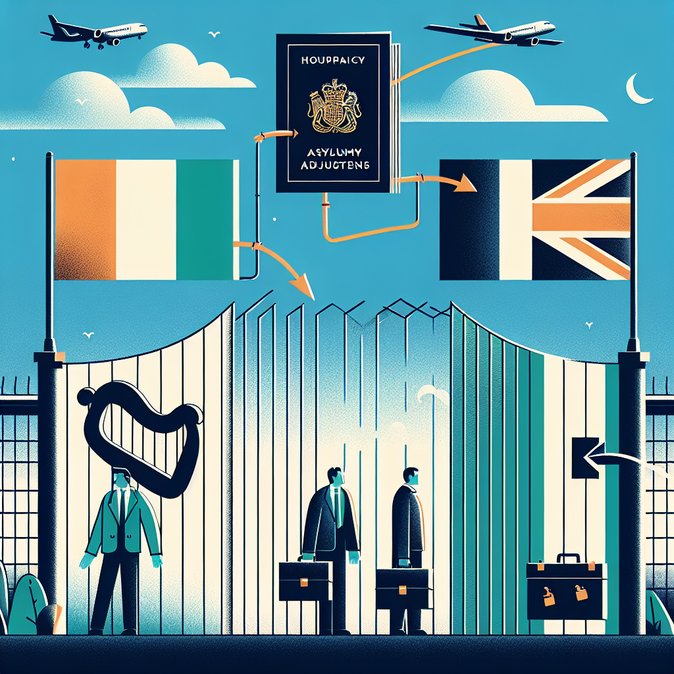
Less than twenty-four hours before the British plans were formally tabled in Westminster, The Guardian revealed that the Irish Justice Minister had already briefed the British-Irish Inter-Governmental Conference on potential knock-on effects. Jim O’Callaghan told counterparts on 17 November 2025 that Dublin would “closely monitor” London’s proposals and adapt Irish law if necessary to prevent the Republic becoming more attractive than the UK for asylum seekers.
Data released by the Department of Justice show that over 80 percent of recent irregular entrants first travelled to Great Britain and then crossed to the Republic through Northern Ireland. The CTA, in place since 1923, guarantees free movement for Irish and British citizens but was never designed to manage divergent asylum regimes. Officials fear the emerging policy gap could overwhelm Ireland’s international-protection system, already strained by record applications in 2024-25.
![Dublin warns of ‘Belfast back-door’ risk as UK asylum crackdown looms]()
O’Callaghan confirmed that a new International Protection Bill, due before the Dáil in December, could be amended to mirror UK inadmissibility rules, speeding returns to “safe” third countries and tightening the appeals process. Opposition parties have demanded full transparency on any bilateral readmission arrangements with London, citing human-rights obligations.
Economists note that inward migration has underpinned strong labour-market growth, especially in construction and health-care. Yet political sentiment has hardened after a series of protests outside refugee accommodation centres. Businesses therefore welcome clearer, faster procedures but caution against abrupt restrictions that could deepen skills shortages.
For employers, the immediate takeaway is uncertainty: corporate mobility teams should track the legislative timetable, review timelines for Intra-Company Transfer visas and anticipate possible documentation checks on domestic flights and ferries linking Britain and Ireland. Multinationals are advised to engage with industry associations as consultation drafts emerge.
Data released by the Department of Justice show that over 80 percent of recent irregular entrants first travelled to Great Britain and then crossed to the Republic through Northern Ireland. The CTA, in place since 1923, guarantees free movement for Irish and British citizens but was never designed to manage divergent asylum regimes. Officials fear the emerging policy gap could overwhelm Ireland’s international-protection system, already strained by record applications in 2024-25.

O’Callaghan confirmed that a new International Protection Bill, due before the Dáil in December, could be amended to mirror UK inadmissibility rules, speeding returns to “safe” third countries and tightening the appeals process. Opposition parties have demanded full transparency on any bilateral readmission arrangements with London, citing human-rights obligations.
Economists note that inward migration has underpinned strong labour-market growth, especially in construction and health-care. Yet political sentiment has hardened after a series of protests outside refugee accommodation centres. Businesses therefore welcome clearer, faster procedures but caution against abrupt restrictions that could deepen skills shortages.
For employers, the immediate takeaway is uncertainty: corporate mobility teams should track the legislative timetable, review timelines for Intra-Company Transfer visas and anticipate possible documentation checks on domestic flights and ferries linking Britain and Ireland. Multinationals are advised to engage with industry associations as consultation drafts emerge.


